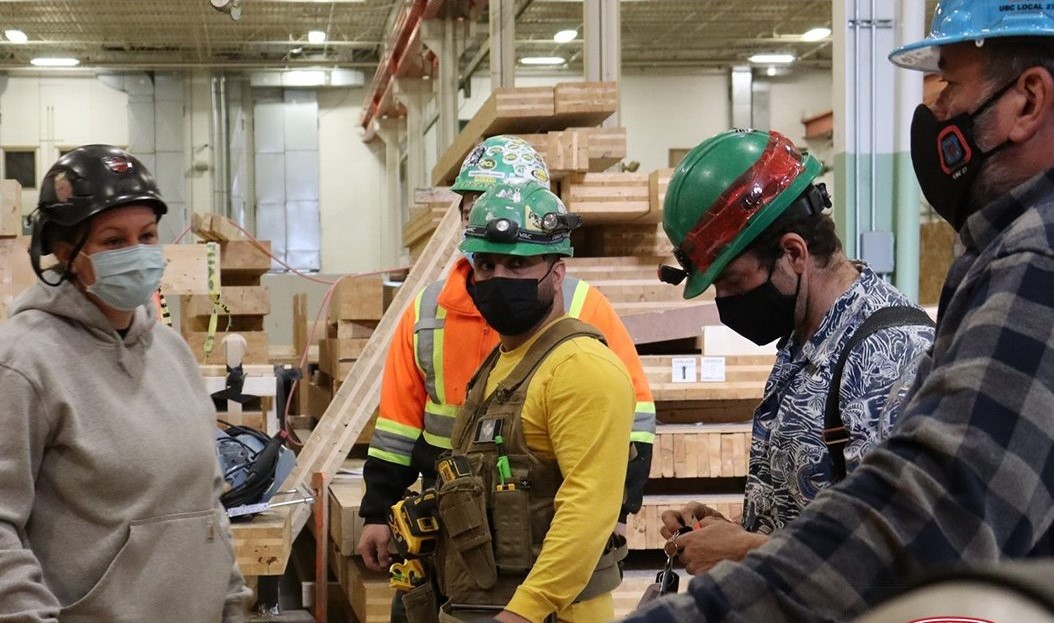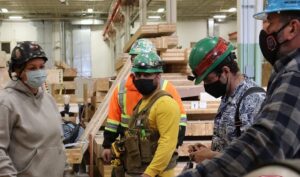Carpenters’ Union, Priorities for a Stronger Economy
The following is an edited version of a document co-authored by Tony Iannuzzi, Executive Secretary Treasurer and Mike Yorke, President of the Carpenters’ District Council of Ontario (CDCO), in preparation for the Budget consultation by the Ontario Government.
Investments in infrastructure are crucial to a strong economic recovery for Ontario and Canada as a whole, especially in the wake of Covid-19. Such investments have the ability to create jobs, get people back to work and build a stronger workforce.
A healthier workforce, one that is diversified in a broad range of skilled trade workers extends beyond the short to medium term. In our experience, targeted infrastructure investments have greater benefits for long term economic success while also supporting a greener economic recovery.
Carpenters already lead the growing trend for greener, more sustainable and renewable building solutions in the construction industry. Mass Timber projects across the industry are just one example. They help reduce the carbon footprint.
For example, once completed (2024), Limberlost Place at George Brown College in Toronto will store over 12,000 metric tonnes of CO2 and avoid roughly 5,000 metric tonnes of GHG emissions. Mass timber projects also bring greater opportunity for Ontario’s northern and Indigenous communities in terms of resource development, cultivation and sustainability.
Our Union also highlights other critical areas for government investment including the environmentally friendly retrofitting of buildings. Projects of this nature result in significant reduction in energy consumption and offer a cost-effective and eco-friendly alternative to the demolition of existing structures, (emphasis added).
Similar approaches apply to transportation. Millions of Ontarians rely on public transit to navigate in and around their communities. As the urban sprawl continues beyond the GTA, better transit infrastructure is key to facilitate mobility while reducing people’s reliance on cars.
Carpenters recognizes the importance of additional infrastructure initiatives for the development of transit-oriented communities. The development of low to mid rise housing units along transit corridors may offer sustainable solutions to ease the housing shortages that exist in densely populated urban areas.
None of this can be achieved without the necessary skilled labour force.
Within the next ten years, approximately 259,000 construction workers, will transition into retirement, according to BuildForce Canada. That loss represents about 22% of the construction labour force. Potentially, that deficit means we will require some 26,000 skilled workers per year.
The College of Carpenters and Allied Trades (CCAT) offers essential training and apprenticeship programs to help develop the next generation of skilled trades people in the industry. We at the CDCO strongly believe this budget is the perfect opportunity to meet the training commitment to the construction industry.
Building a stronger economy also involves a collaborative effort by everyone to “play by the rules”. For the Carpenters’ Union, that means making sure all Ontarians “pay their fair share” and help eliminate “Tax Fraud and Wage Theft”. Contractors operating in the “underground economy” cost the Provincial and Federal Governments an estimated $1.8 billion to $3.1 billion in lost revenues annually, according to the Ontario Construction Secretariat.
Our annual “Tax Fraud Days of Action” campaign is not only a reflection of our civic responsibilities; it helps focus attention on the importance of adequately funding all levels of government. We believe it is critical to implementing the right strategies that can help build a stronger, more robust economy moving forward.
Photo credit: CDCO




